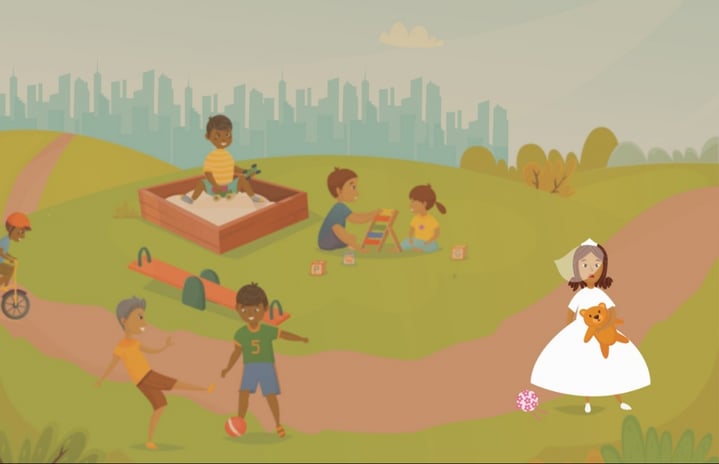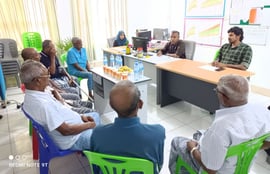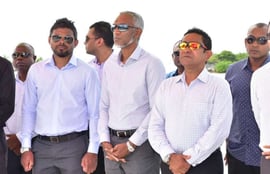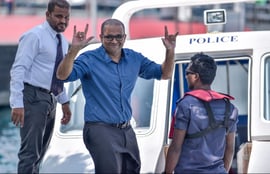In November 2019, the whole country was shaken by the case of a 13 year-old child that gave birth to the child of her rapist, a man of 26-years whom she ‘married’ a year earlier.
A sizable portion of the population erupted in rather justifiable outrage.
Ironically, the case resurfaced only days after President Ibrahim Mohamed Solih ratified the new Child Rights Protection Bill.
Amidst the chaos of demands for the rapist to be apprehended and justice for the girl, more disturbing questions arose; where were her parents? Did they just stand by while this happened to her? Or worse, did they actively condone it?
As is the case in the vast majority of places across the world, 12-year-olds in Maldives are financially, socially and emotionally dependent on their parents or guardians. The possibility that such a child would willingly seek out such a circumstance is so unlikely that it is laughable. Suppose such a situation arose in which the child had given ‘consent’ - the child would not, cannot understand the gravity of entering said ‘marriage’, the severity of which is often lost even on fully grown adults living in the ‘divorce capital’ of the world.
The near guarantee that the parents were involved in the dubious marriage contract is a disturbing fact to digest, but it must be accepted that is the case, at least for the sake of other little girls who can be spared from such a blatant theft of their fundamental rights.
Who to blame
Regardless of flimsy justifications, what happened to this girl is undoubtedly a crime.
Classified statutory rape under the Sexual Offences Bill, the consummation of a child marriage is also prohibited under the recently ratified Child Rights Protection Bill which raised the marriagable age to 18.
Child marriage disproportionately affects girls, particularly in South Asia and violates children’s rights, increasing their vulnerability to domestic violence, exploitation, and abuse. Health wise, child brides face a greater likelihood of sexually transmitted diseases, cervical cancer, malaria, death during childbirth and obstetric fistula. Offspring borne by these children are at a substantially greater risk of perinatal infant mortality and morbidity.
The out-of-court marriage is not a standalone incident. The Maldives Police Service revealed that three child marriages were reported in 2014 while another incident was brought to attention in 2015 after an underage ‘bride’ became pregnant. Investigations concerning the latter case are ongoing and as of yet, no individual has been punished.
Although historically the state has prioritized meting out punishment to the rapist in cases of child marriage, the unique nature of a crime perpetrated against a minor necessitates parents being brought into the conversation and in necessary cases, sharing part of the blame.
The arrest of her parents on December 10 over counts of negligence is a positive sign, however, it is unclear at present what repercussions they will face for their actions.
It stands to reason that a comprehensive solution to the pseudo-legal abuse of children must involve stringent punishment against parents that enable such exploitation.
Some countries have already introduced such measures. For instance, India’s Prohibition of Child Marriage Act 2006 imposes a 2 year jail sentence, a one lakh rupee fine or both on any person having charge of the child that promotes or permits child marriage or negligenctly fails to prevent it being solemnized.
Snail paced justice and an array of excuses
Despite the urgency of introducing such measures and the importance of ensuring that laws in place to combat child marriage and other abuses are strictly enforced, the government response has been, to say the least, lacking.
The case was initially reported in February at which time the authorities only investigated the matter as an instance of neglect and did not relocate the girl, citing that she was safe with her mother. The 13-year-old was living with her family when she became pregnant. The family is also under investigation for religious extremism, depriving their children from education, adequate healthcare and other human rights.
More appropriate measures were only taken following significant public outcry after the ‘husband’, Ismail Hammaadh, of Maduvvari, Raa Atoll, was assaulted and thrown overboard from a boat following a dispute with other individuals aboard the vessel. Reports state that all persons on the boat were known religious extremists.
The police arrested Ismail Hammadh, previously convicted and sentenced for terrorism, on December 1, for contracting a child marriage after DNA evidence conclusively proved that he fathered the underage girl's child. The following day, the girl and six of her siblings were transferred to state care.
The police further revealed the cases would be forwarded to the PG Office for prosection after concluding investigations into rape and child sexual abuse perpetrated by Hammad as well as negligence by the parents.
The arrest of her parents came almost two weeks following Hammadh’s apprehension, several months after she gave birth and almost an year after the illicit marriage was contracted.
This delayed response, especially in the case of those tasked with monitoring such occurrences, is symptomatic of the degenerate social factors that led to the solemnization of this marriage.
Although wide swaths of Maldivian society, particularly those expressed outrage, agree with the almost universal belief that child marriage is a violation of rights, the matter did not go without debate.
As justification, certain factions have drawn parallels between the prophet’s youngest wife Aisha, one of the most illustrious scholars in Islamic history and the unnamed rape victim who was barred from attending primary school.
This argument misses the point entirely and propagates an insidiously dangerous system that views women as only wombs and children as brides. It allows contemptible elements to prey on the most vulnerable members of society without any repercussions.
Protecting Maldivian childhoods, a communal responsibility
The burden of averting the inevitablesuffering that would from child marriages or rather enabling rape, lies with the government. Implementing effective solutions is also necessary if Maldives is to ensure that it adheres to numerous international agreements it is a party to.
While law enforcement needs to find and punish culpable or negligent individuals, the social roots of child marriage also calls for greater awareness and sensitivity by ordinary citizens.
When such issues are discussed at coffee tables or gatherings, approaching the topic with more compassion and a mindset grounded in the lived realities of Maldivians, is more likely to result in a fruitful conversation.
Finally, any person of sound mind in a position to help a victim of child marriage is morally obliged to do so, considering several reasonable arguments.
As succinctly put by Martin Luther King Jr, “the ultimate tragedy is not the oppression and cruelty by the bad people but the silence over that by the good people”.




